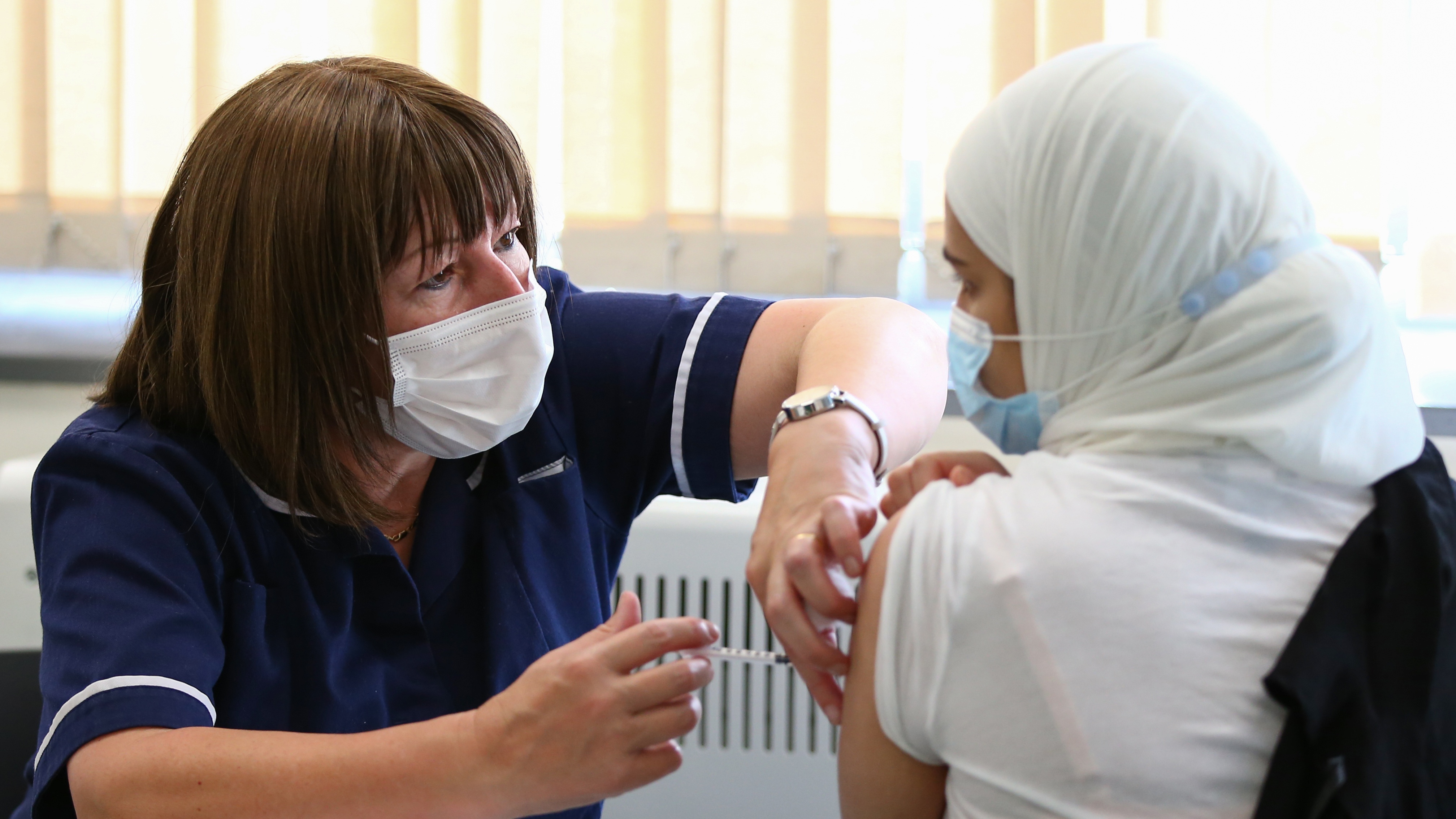How the Pfizer shortage will affect the vaccine rollout
Squeeze on Germany-developed jab may slow vaccinations among younger people

A free daily email with the biggest news stories of the day – and the best features from TheWeek.com
You are now subscribed
Your newsletter sign-up was successful
Ministers are bracing for a lull in the UK’s vaccination campaign as a shortage of the Pfizer vaccine threatens to slow the vaccination of younger people.
Just days after Boris Johnson announced a four-week delay to the lifting of Covid restrictions to allow more people to receive their jabs, the rollout is set to slow down as “the logistical difficulties of reaching the remaining population become more complex”, The i reports.
The delay is in part due to a “squeeze” on the supplies of Pfizer vaccine, which will do a lot of “heavy lifting” for the duration of the vaccination rollout as young people have been advised to take as an alternative to the Oxford-AstraZeneca jab, the paper adds.
The Week
Escape your echo chamber. Get the facts behind the news, plus analysis from multiple perspectives.

Sign up for The Week's Free Newsletters
From our morning news briefing to a weekly Good News Newsletter, get the best of The Week delivered directly to your inbox.
From our morning news briefing to a weekly Good News Newsletter, get the best of The Week delivered directly to your inbox.
Supplies of the Moderna vaccine also remain low in the UK, with only a “limited” supply available to mass vaccination centres, according to medical news site Pulse.
“The determining factor in terms of vaccine-in-arms is supply, and supply remains finite, but it is stable,” Vaccines Minister Nadhim Zahawi told LBC earlier this week. “Pfizer have done a great job in being consistent on their delivery schedule.
“Pfizer has done remarkable things to increase their production, not just for us but for the whole world, for Europe and the US as well. But it is tight.”
Slowing gains
A free daily email with the biggest news stories of the day – and the best features from TheWeek.com
Analysis by The Telegraph found that only 1.2 million first doses were dispensed in the last week, compared with more than three million a week in earlier stages of the vaccine rollout.
The reduction in the number of vaccines means the UK is now “lagging behind Germany, Italy and France,” the paper says.
This in part due to an increased dependency on the Pfizer vaccine, but the rollout is also constrained by wait times between jabs that means there is an upper limit to the number that can be administered each day.
Who will be impacted?
The slowdown isn’t too much to worry about yet, with health officials confident that they will be able to hit the target of offering the first dose to all over-18s and a second dose to two-thirds of adults by 19 July.
Indeed, the rollout of the second jab is likely to go on largely unhindered, mainly due to a “plentiful” supply of the Oxford-AstraZeneca jab, The Telegraph reports. For over-40s in England, the gap between the first and second doses of the vaccine has also been reduced to eight weeks, down from 12, in order to hit the new deadline for “freedom day”.
NHS England boss Simon Stevens has said that the health service would “finish the job” of the vaccination programme to the “greatest extent possible” over the next four weeks, adding that although supplies were “constrained” the NHS is “pacing ourselves at precisely the rate of which we’re getting that extra vaccine supply between now and 19 July.”
The news looks fairly good for young people too, as vaccine bookings are set to open to all over-18s later this week.
Many young people have likened the “scramble” to book a vaccine to “booking tickets for Glastonbury”, The i says, with health officials telling the paper they are confident young adults will have received at least a first dose by the new “freedom day”.
“What we’ll see is what we have seen throughout that supply fluctuates week to week and day to day,” a No.10 spokesperson told the paper. “We have a robust supply of vaccinations that allows us to proceed at pace.”
Sorcha Bradley is a writer at The Week and a regular on “The Week Unwrapped” podcast. She worked at The Week magazine for a year and a half before taking up her current role with the digital team, where she mostly covers UK current affairs and politics. Before joining The Week, Sorcha worked at slow-news start-up Tortoise Media. She has also written for Sky News, The Sunday Times, the London Evening Standard and Grazia magazine, among other publications. She has a master’s in newspaper journalism from City, University of London, where she specialised in political journalism.